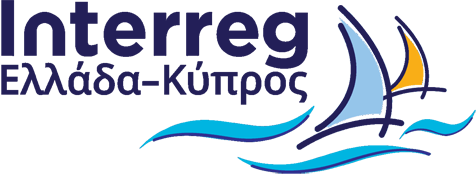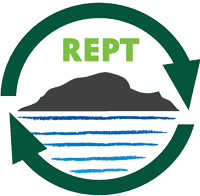We are always looking for ways to develop skills and promote recycling in our country.
Our participation in European programs aimed at raising public awareness and information on all issues related to the environment and recycling, is of paramount importance for our organization.
Below are the European programs in which our organization participated:
1. European Territorial Cooperation (ETC) – Interreg

European Territorial Cooperation (ETC), also known as Interreg, is one of the two objectives of EU cohesion policy and provides a framework for the implementation of joint actions and policy exchanges between national, regional and local actors from different Member States.
The primary objective of the European Interreg program is to promote the harmonious, economic, social and territorial development of the Union as a whole.
In the framework of this program, the European Commission approved the program Interreg V-A Greece – Cyprus “2014-2020” with its decision on 27/07/2015.
The main objectives of the program are the following:
This program requires two users, one from Greece and one from Cyprus (Green Dot Cyprus). The program aims to support waste recycling actions which are an integral part of integrated waste management in all modern societies. In particular, it focuses on the use of intelligent robotic systems that will automate the sorting /classification process of recyclable materials to enhance their value and prospects for reuse.
The InterRecycle proposal utilizes available robotic technology that will be improved and applied, in Greece and Cyprus, to waste treatment plants that currently operate based on hand sorting.
More information can be found on the program website http://greece-cyprus.eu/.
2. RETHINK Awareness Campaign – Reduce, Reuse, Recycle for the reduction, reuse and recycling of waste in Cyprus

The Rethink – Reduce, Reuse, Recycle campaign is an awareness campaign for Waste Reduction, Reuse and Recycling and was implemented by a team of partners led by the Cyprus Broadcasting Corporation (CYBC) and in which Green Dot Cyprus, Fost Plus of Belgium, the Cyprus News Agency, the Pedagogical Institute of the Ministry of Education and Culture, and the Department of Environment of the Ministry of Agriculture, Rural Development and Environment have been participated.
The campaign lasted 34 months, was completed in August 2017 and is co-financed by the Life + Environmental Policy and Governance program of the European Union by 42%.
The aim of the project was to inform and raise public awareness of the need to reduce, reuse and recycle waste in Cyprus through an extensive awareness campaign, based on an integrated communication strategy focused on Reduce, Reuse, Recycle (RRR). Many actions were taken and material was developed in both printed and electronic form.
Campaign Goals
The campaign had the following goals:
Overall, the program’s contribution to promoting reduction, reuse and recycling can be considered very successful.
Like any European program, the Rethink campaign should continue part of its activities for the next 4 years after the end of the program.
3. “Businesses Subsidising Plan for the Replacement of Job Positions of Low Productivity with Job Positions of High Productivity”
Within the framework of the effort for the improvement of its productivity, Green Dot Cyprus participated in the “Businesses Subsidising Plan for the Replacement of Job Positions of Low Productivity with Job Positions of High Productivity”
The above plan was included in the Action Plan 2007-2009 of the National Productivity Programme 2007-2013 and was co-funded by the European Fund for Regional Development, the European Social Fund, the Cohesion Fund and the State Budget within the framework of the Business Programme, “Employment, Human Capital and Social Cohesion”.
The local administrator of the Programme was the Productivity Centre.
The basic goals of the Organisation in this Plan was the development of a comprehensive system of Customer Relationship Management which would focus on communication with our members and shareholders, as well as the development of an electronic system for the exchange of information with the contractors of the Organisation for the whole breadth of activities. A part of the project was also the review and improvement of the procedures of the Organization including the restructuring of the processes of the call centre in accordance with the type CYS EN 15838:20009.
The Organisation successfully completed the programme and achieved the goals it had set.
4. Environmental Policy Support Tool for Recycling in Islands
 In January 2009, the first project for Cyprus started with funding from the LIFE + Environment program, after its accession to the EU. The project was based on an initiative of Green Dot Cyprus which also established the relevant project team. The Ministry of Interior was appointed managing partner of the project and the duration of the project was 24 months.
In January 2009, the first project for Cyprus started with funding from the LIFE + Environment program, after its accession to the EU. The project was based on an initiative of Green Dot Cyprus which also established the relevant project team. The Ministry of Interior was appointed managing partner of the project and the duration of the project was 24 months.
The project team included, in addition to the Ministry of Interior, from abroad the corresponding Green Dot Cyprus organizations in France, Greece and Malta, while from Cyprus the Green Dot Cyprus, the University of Cyprus (Department of Civil and Environmental Engineering) and the consulting company Nicolaides and Associates.
The islands present specific characteristics and additional challenges compared to other Member States in the implementation of environmental legislation, which affect the cost and efficiency of solid waste management schemes. Particularly small islands are characterized by small population size and area while the limited volume of waste makes the implementation of recycling schemes economically unprofitable. Recycling is based almost entirely on exports which, in addition to their significant costs, are also a significant burden on the environment. Islands Member States such as Cyprus and Malta require a larger share of financial and human resources to develop basic recycling infrastructure than the rest of Mainland Europe.
The LIFE + REPT program aimed to study these characteristics, while optimal economic and environmental solutions for recycling on the islands were identified. The program aimed, among other things, at developing a decision support tool, which would allow the calculation of the environmental benefit as well as the financial cost of alternative management schemes. This tool was intended for packaging waste (paper, glass, plastic, metal) and specific categories of waste electrical / electronic equipment (refrigeration and air conditioners, CRT monitors and fluorescent lamps) and could be applied to a number of islands with different characteristics.
At the same time, the project developed an electronic tool to assist in decision-making regarding the implementation of recycling projects for such materials on the islands.
More information can be found on the program website at www.eng.ucy.ac.cy/rept.